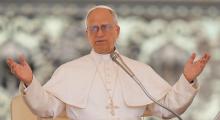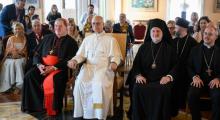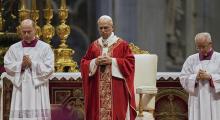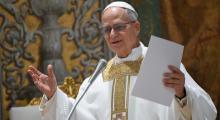Issued by the Catholic Center for Studies and Media - Jordan. Editor-in-chief Fr. Rif'at Bader - موقع أبونا abouna.org
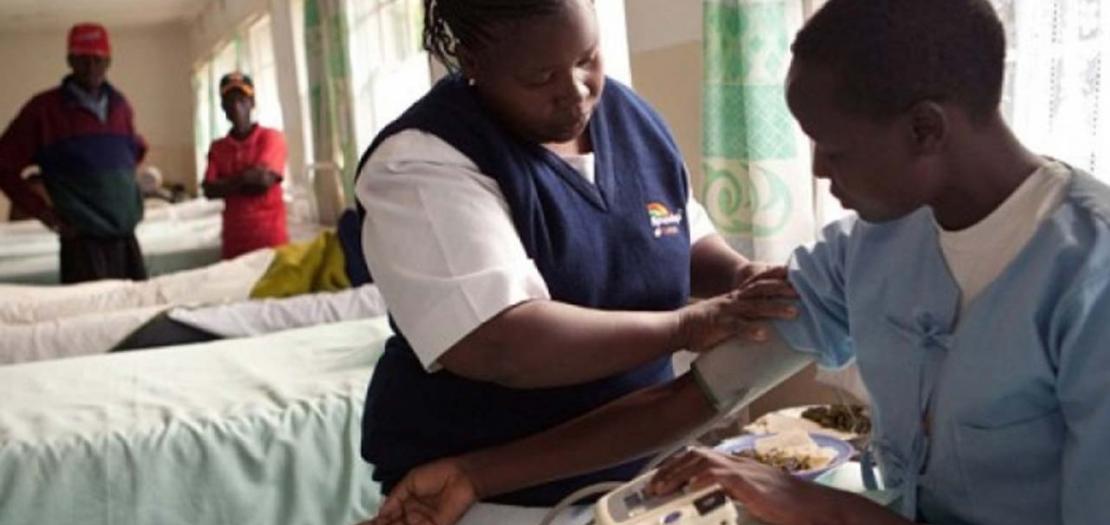
According to the Vatican’s yearbook, there are currently 116,000 Catholic health organizations around the world. A conference to open in Rome ton November 16, will try to kick-start a network that connects all of them through an operational platform of sharing and cooperation.
This project will promote the exchange of information, know-how, best practices, and protocols between Catholic healthcare institutions in various geographical and social contexts.
“Nothing should be proprietary in terms of what we do in our institutions. We have to be able to share those medical practices, especially if they are able to increase the quality of life of the people we serve,” said Anthony R. Tersigni, President and Chief Executive Officer of Ascension, a Catholic healthcare association.
The Nov. 16-18 conference “Addressing Global Health Inequalities” will take place at the Vatican’s New Synod Hall, and it’s the 32nd of its kind. It’s being organized by the Dicastery for Promoting Integral Human Development and the International Confederation of Catholic Healthcare Institutions (CIISAC).
In addition to Ascension, Tersigni also serves as president of the CIISAC.
The list of speakers includes several cardinals, such as Italian Pietro Parolin, the Vatican’s Secretary of State; Peter Turkson of Ghana, head of the Vatican office organizing the conference; Jean Zerbo, of Mali; Mario Zenari, papal representative in Syria; and Luis Antonio Tagle, of the Philippines. Also speaking will be American Sister Carol Keehan, President and Chief Executive Officer of the Catholic Health Association, and Beatrice Lorenzin, Italy’s Health Minister.
“We’ve asked people from all over the world to come and share their experiences both in healthcare, healthcare economics, formation, and to launch the beginning of our website which will connect over 116,000 Catholic healthcare institutions around the world,” Tersigni said.
The global network will be launched during the conference, and will include 150 Catholic hospitals from different continents, that will be represented by their managers in Rome. This nucleus of aggregation will then work to become an operational global network.
Their aim at furthering cooperation between the Catholic organizations is, according to Tersigni, their way of answering Pope Francis’s call to come together as one community of Catholic leaders in order to address the issues they each face on a daily basis.
The conference is divided into three sections: “Informing in order to know,” “Knowing in order to act,” and “Acting in order to change.”
A press release from the dicastery says that the conference will try to raise awareness about the disparities in the field of health in the world in order to establish a common pathway that will be able to foster a growing contribution among healthcare institutions.
Knowledge, the statement says, allows for the promotion of theological and spiritual formation, ethical-moral education, and research at the level of pastoral care for all those who are involved in various capacities in Catholic healthcare institutions. This knowledge would lead to “healthcare programs that respect the social doctrine of the Church,” and the practical socio-political and ecclesial realities of the various geographical areas of the world.
Action, according to the conference organizers, means developing programs of formation and the creation of opportunities that would facilitate their application throughout the world. These programs would help Catholic healthcare institutions “change the way things are,” providing a solution to the new needs of public health, the result of the “epochal migratory events,” and of the “growing scourge of human trafficking.”
According to Tersigni, the gathering will set the stage for Catholic healthcare organizations to recognize that they’re all part of one Catholic health ministry in the world, and therefore “we should be treating each other as brothers and sisters in the care for the poor and vulnerable in the world,” not as competition.


